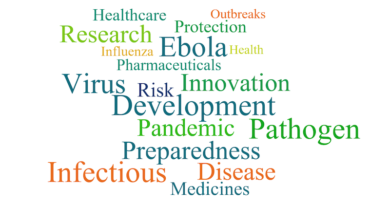
To eliminate measles in Germany: The Measles Protection Act. Requirement for all children entering school or kindergarten to have both measles vaccinations
Measles are among the most contagious infectious diseases and – contrary to the widespread narrative they are not a ‘harmless children’s disease’! In fact, globally, measles cases even doubled in 2018. In Germany, a large number of children, young people and adults are still not vaccinated against measles. This means that they can shed and spread the pathogen, causing repeated outbreaks. We cannot let this go unchallenged.
The best protection against measles is vaccination. Vaccines afford immunity for life.
Therefore, I most strongly believe that not only do people who fail to have themselves or their children vaccinated put their own life and health at risk, but, as we live in an open society, they do the same to others. My goal is to protect all children in Germany, if at all possible, from measles infection at day care facilities, at their day care mother’s home and at school. This is why we seek to make measles vaccination mandatory in all of these settings. We want to do this by introducing the “Measles Protection Act”. With the approval of the German Bundestag, it will become effective in spring of next year.
What specific regulations do we have in mind? Going forward, all children entering school or kindergarten will need to provide evidence of the two measles shots recommended by the German Standing Committee on Vaccinations (STIKO). This proof will also have to be furnished if the child is being looked after by a day care mother. Persons who work
in these settings will also have to be vaccinated against this dangerous infectious disease. The same applies to staff working in healthcare facilities. Exempted from mandatory vaccinations are persons for whom the vaccine would not be safe on medical grounds and persons born before 1970. In the absence of this proof, the child can be barred from attending school or day care. Parents of school children will face a fine. After all, it is the same as in road traffic: if you put others at risk and get caught, you have to pay a fine.
Between August 2018 and late July 2019, more than 13,000 measles cases were reported across Europe. In Germany, as many as 485 cases were registered by early September of this year. In 2018, a total of 544 cases were reported nationally for the entire year. Measles commonly involve complications and lead to secondary conditions. One in 1,000 children who contract measles will develop a brain inflammation known as measles encephalitis.
Children under five, and adults over 20 years of age, are at an increased risk of experiencing serious complications. This clearly debunks the argument put forward by many vaccine deniers that measles usually takes a mild course therefore rendering vaccination unnecessary.
However, according to current evaluations done by the Berlin-based Robert Koch Institute (RKI), despite all of the campaigns to educate the population, the measles vaccination gaps in Germany are still too large. While it is true that 97.1 per cent of all children starting school have had their first shot, there are large regional differences in the numbers of those getting the second, decisive shot. This means that, at Federal level, we still fall short of the target immunisation coverage of 95 per cent. Only this coverage rate can afford what is known as ‘herd immunity’.
According to new data from the RKI, a good 93 per cent of children who started primary school in 2017 have had two measles shots. Here, it must be said that not all of the parents who failed to get the second shot for their child on schedule are out and out ‘vaccine deniers’. This can be seen from the fact that the children already had their first shot.
Apparently, there are those parents who just lose sight of the second shot and its importance for long-term immunity. It may be that the family is growing or that the demands of work, the children starting school and going about their hobbies sometimes make it hard to organise daily life.
With all of that, the second shot is easily for- gotten. We can therefore assume that our new regulation will provide a welcome reminder in these cases. And I trust that it will result in more children getting both measles vaccinations.
The case might be different for people who are against mandatory immunisation for other reasons. In such cases, reference is often made to the question of proportionality and the right to “free choice regarding vaccination”. My counterargument is that any person who sits in a paediatrician’s waiting room with their baby, who is still too young to be vaccinated, must be able to rely on the older children in the waiting room not having measles. That too is a precondition of freedom and it applies particularly to those entrusted to our care who are children.
And even more so to children who cannot be vaccinated for medical reasons. Naturally, it also becomes the State’s business if unvaccinated children attend day care facilities and schools. This is especially the case if, as in Germany, school attendance is mandatory.
Being unvaccinated not only poses a considerable threat to the physical well-being of the affected person themselves but also constitutes a risk to other persons who, for example, because of their age or specific health limitations cannot be vaccinated.
That is why mandatory vaccination must begin as early as possible and must begin in those places where people come into daily contact with one another.
Vaccination is one of humanity’s greatest achievements. We have almost eradicated infectious diseases that in earlier generations took the life of many millions of people. I therefore have the utmost confidence that through this piece of legislation vaccination will become the norm and vaccination myths will be exposed. Mandatory vaccination for children should also cause parents to reflect and to ask themselves: why am I not vaccinated? In short, mandatory vaccination is health education!
In a free country, I must be able to bank on the fact that the person sitting opposite me does not pose a danger to me.
That too is a pre- condition of freedom. We have an obligation to protect our children, so that they do not become infected and infect others. If parents do not do it, then the State must take action! No child in Germany should ever again become infected with measles or die as a consequence of this disease.




